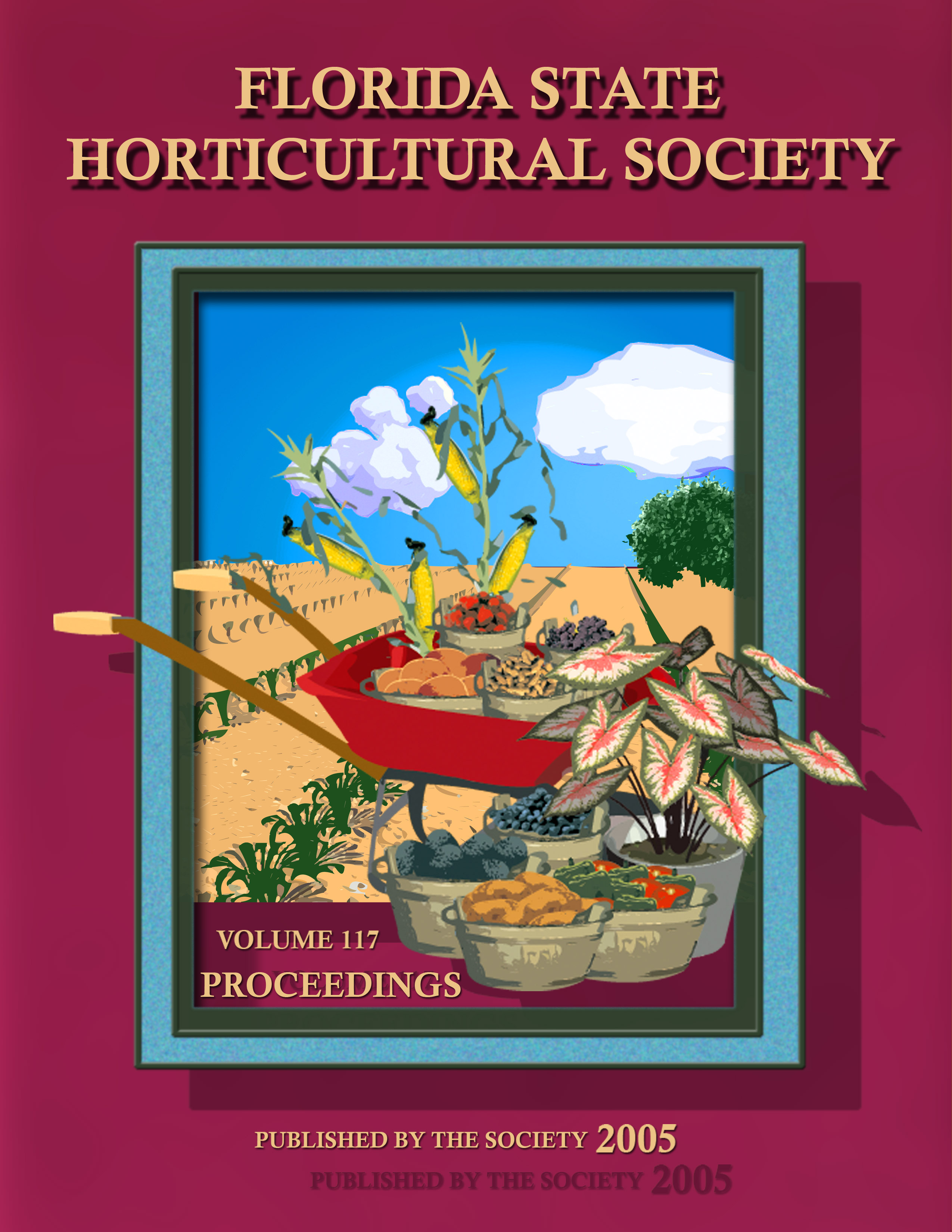Abstract
The melon thrips (Thrips palmi Karny) is a significant pest of various vegetable crops in the south Florida. The lack of proper management program against T. palmi is a great concern to the vegetable growers. Various studies were conducted to manage T. palmi in an efficient way. Spintor® at 8.0 oz/acre in combination with Joint Venture, a mixture of organosilicone surfactants, provided significant reduction of T. palmi adults. Spintor (4 or 8 oz/acre) in combination with sticker and surfactants provided significant control of T. palmi larvae. The effectiveness of Novaluron, an insect growth regulator, did not differ from Spintor in controlling T. palmi adults and larvae. V10132 significantly reduced T. palmi adults. Among off-season hosts, Lantana and Aster had the lowest and amaranth had the highest numbers of T. palmi populations. T. palmi populations were consistently present in okra and Thai eggplants across the growing season. Among various host crops, minute pyrate bug (Orius insidiodus) populations were higher in cucumber, eggplant, and squash than other vegetable crops. The above information is essential to manage T. palmi by integrating chemical, cultural and biological tools.

